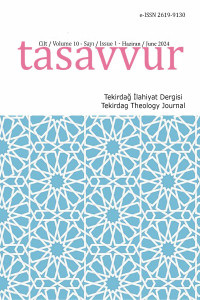Emîrü’l-Ümerâlık Kurumunun Abbâsî Yönetimine Etkisi
The Effect of the Amīr al-Umarā Institution on the Abbāsīd Administration
Author(s): Haci AtaşSubject(s): Islam studies, Politics and religion, History of Islam
Published by: Tekirdağ Namık Kemal Üniversitesi İlahiyat Fakültesi
Keywords: Islamic History; Abbasids; Amīr al-Umarā; Ibn Rāik; Bajkam; Tuzun;
Summary/Abstract: The concept of Amīr al-Umarā was used for the first time during the reign of Caliph Umar. This term, which was used to mean "commander-inchief" at that time, denoted a higher rank during the Abbasid period. This institution was used during the Abbasid period to express a title between vizierate and caliphate. However, Amīr al-Umarā had much more authority than the viziers. During the establishment of this institution, the position of vizier continued to exist, but the vizier no longer had any authority. The Caliph transferred almost all his authority and responsibility to Amīr al-Umarā. The reason for the emergence of this institution, equipped with enormous powers, was to restore the political and economic stability that had been lost throughout the country. Founded by Caliph Rāzī (d. 329/940) in the midtenth century, this institution continued its existence for about ten years. Charismatic leaders of the period such as Ibn Rāik (d. 330/942), Bajkam (d. 329/941) and Tuzun (ö. 333/945) were appointed with the authority of Amīr al-Umarā. In this study, an answer was sought to the question of whether this institution, which was established to end the bad situation in the country, could provide the expected function. How did Amīr al-Umarā, equipped with extraordinary powers, contribute to political and economic stability? As a result of the research, it was seen that amīrs who were assigned with high expectations could not show the success expected from them. As a result of the research, it was seen that amīrs who were assigned with high expectations could not show the success expected from them. Worse still, due to the struggle to become Amīr al-Umarā, the Abbasids came to a point where it looked back to its old days.
Journal: Tasavvur Tekirdağ İlahiyat Dergisi
- Issue Year: 10/2024
- Issue No: 1
- Page Range: 213-243
- Page Count: 31
- Language: Turkish

